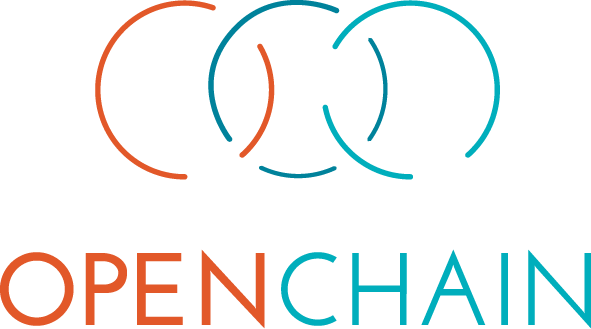The OpenChain Project had the opening keynote at the FOSSLight Community Day 2023 held in Seoul, South Korea at the end of November. You can check out our slides from the event below.

Newsletter – Issue 60 – November 2023
The OpenChain Newsletter provides a monthly summary of our work. It contains an overview of what we are doing to build trust around license compliance and security in the open source supply chain. We accept suggestions and ideas. Feel free to mail us at any time.
Headline News
- Korea Telecom (KT) Announces an OpenChain ISO/IEC 5230 Conformant Program
- KakaoBank Announces an ISO/IEC 18974 Conformant Program
- Vectoverse LTD Announces OpenChain ISO/IEC 5230 Conformant Program
- LSware Announces An OpenChain ISO/IEC 5230 Conformant Program
Outreach
Webinars
- No recording released this month.
Meetings
Our community held the following meetings:
- OpenChain North America – Europe Call – 2023-11-07
- OpenChain Export Control Work Group 2023-11-07
- OpenChain Education Work Group Call – 2023-11-09
- OpenChain Monthly North America and Asia Call – 2023-11-21
- OpenChain UK Work Group Meeting – 2023-11-28
Check Out All Our Previous Newsletters:
Stefano Maffulli, Executive Director at the Open Source Initiative, will join us to explain what is happening around the Open Source Definition, AI and more. Questions during the live event will be possible.
This webinar is part of the on-going series provided by the OpenChain Project as a free resource to help open source supply chain participants understand our field in more depth.
Register here:
https://zoom.us/webinar/register/WN_iOJFdFsQQmCioJXfbMwH3g
As per our current chair, Andrew Katz:
We’ve decided that the next meeting (28th November) will be held virtually, since people seem to be getting pretty full diaries prior to Christmas. We are, however, looking to arrange a programme of events next year, which will be held in person and hopefully in different parts of the country. We’ve had a kind offer for a physical location in London, for a physical meeting in February – details to follow.
In the meantime, therefore, we’d like to invite you to a meeting at 2:30pm on 28th November, on Zoom:
https://us06web.zoom.us/j/83410853875?pwd=7SnYrP0l6VBZyqp7VMOpggTgWRKZce.1
We’ll be giving you an update on activities, and setting the agenda for next year.
There’s a lot going on in the world of OpenChain!

KakaoBank, a South Korean mobile-only internet bank and financial technology company, has announced the adoption of OpenChain ISO/IEC 18974 in their open source security assurance program. Founded in 2016, KakaoBank is one of the leading financial technology companies in the region.
KakaoBank has long been an active contributor to the open source community. In collaboration with other South Korea companies, KakaoBank has continually sought to make sure practical, efficient value is obtained from the potential of open source platform technologies. Their adoption of OpenChain ISO/IEC 5230, the international standard for open source license compliance, in 2022 was an early indicator of this. The announcement of ISO/IEC 18974 adoption today underlines that commitment.
“The open source team at KakaoBank has taken great strides in demonstrating the effective management of open source for large, agile and rapidly growing business sectors,” says Shane Coughlan, OpenChain General Manager. “The financial sector provides unique challenges in both being an environment of heavy regulation and caution, and a space where rapid digital innovation is taking place. Open source provides an obvious way to ensure new platforms and technologies can be turned into great new services, and the OpenChain standards for license compliance and security assurance provide a way to manage things in a predictable, reliable manner. We are delighted to work with the visionary team at KakaoBank and we look forward to collaborating further on the development of a more trusted supply chain.”

LSware, a company providing Compliance Availability Protection and Security (CAPS) services, has announced an OpenChain ISO/IEC 5230 conformant program. Delivering SecuMS, Omniguard, and FOSSERA and other solutions to the Korean market, LSware is committed to supporting an effective, efficient supply chain.
“We are delighted to welcome LSware to the OpenChain community of conformance,” says Shane Coughlan, OpenChain General Manager. “Korea has been a market of exceptional engagement with our standards for open source license compliance and security assurance, and this represents another example of innovation and leadership in that geography.”
The latest meeting of the OpenChain Export Control Work Group covered an extraordinary amount of ground. There is a proposal for the inclusion of export control information in a future revision of SPDX, and we had both a presentation about that work alongside the opportunity to comment on it. This recording is highly recommended as an onboarding point to our work group.
Want to be involved? You can join the mailing list at this link:
https://lists.openchainproject.org/g/export-control-wg/messages
